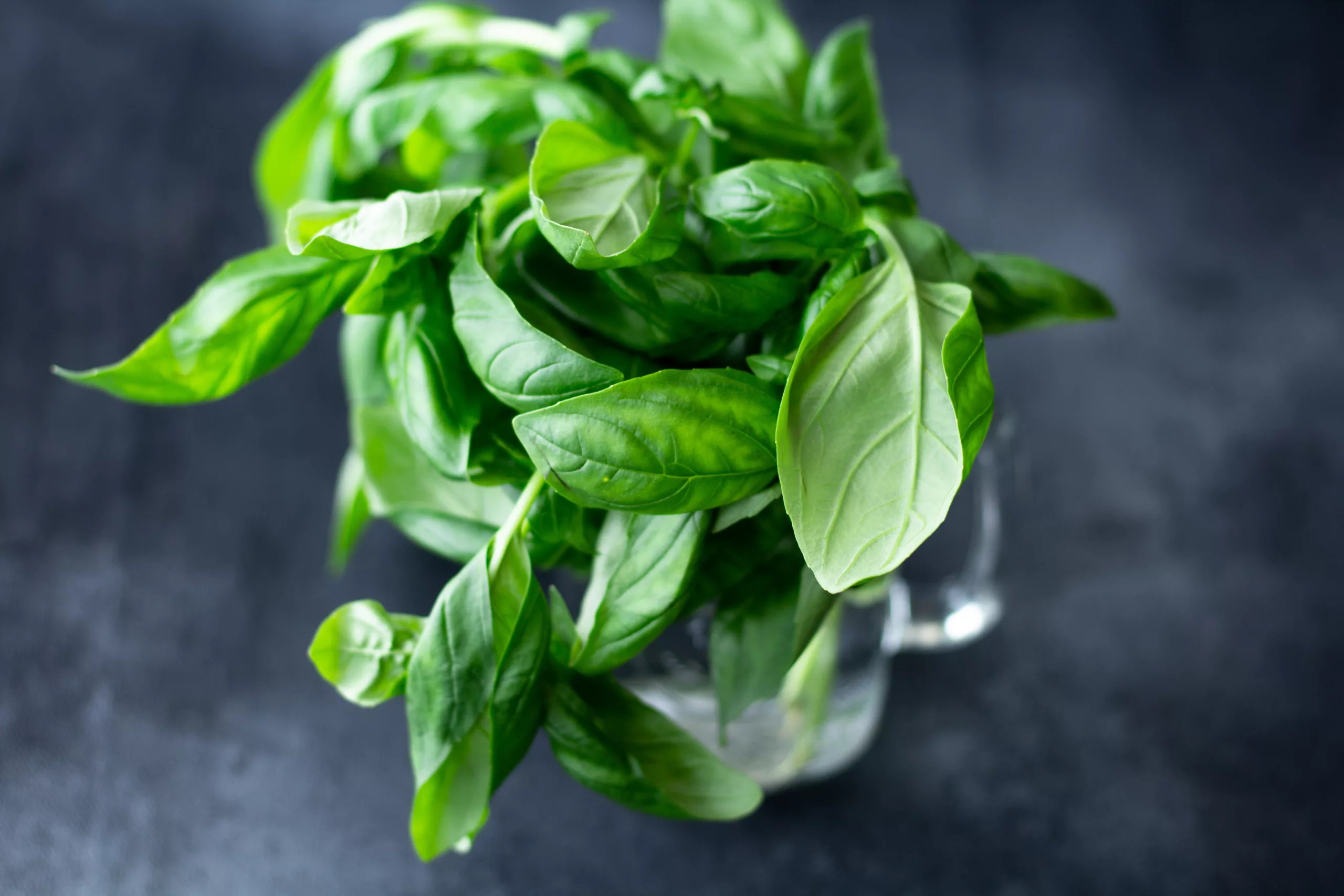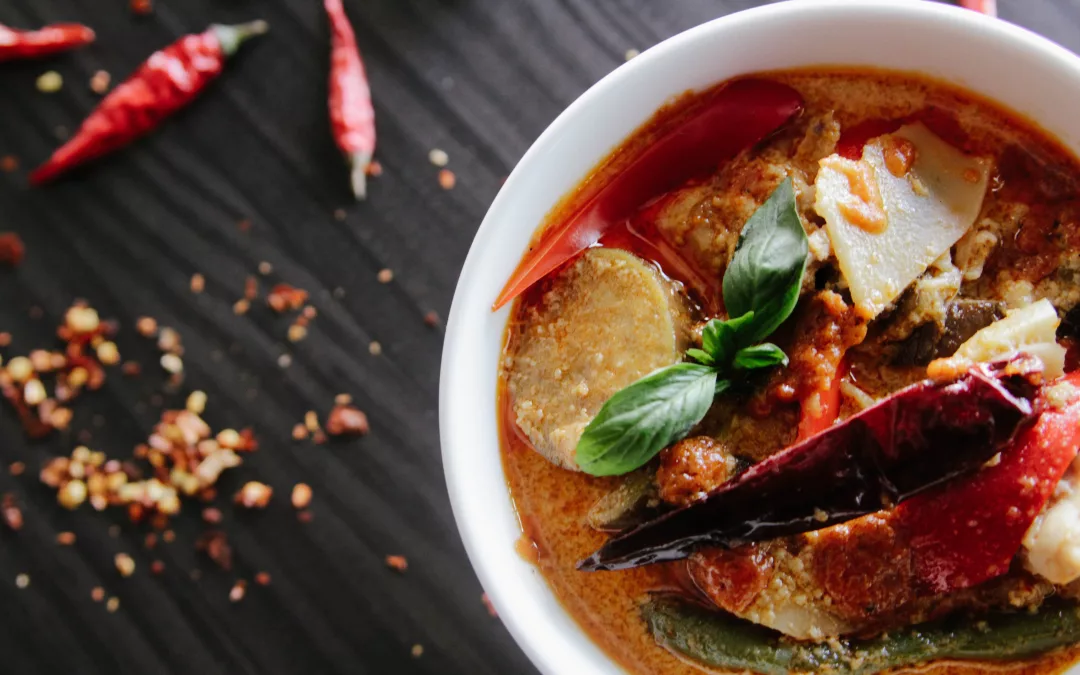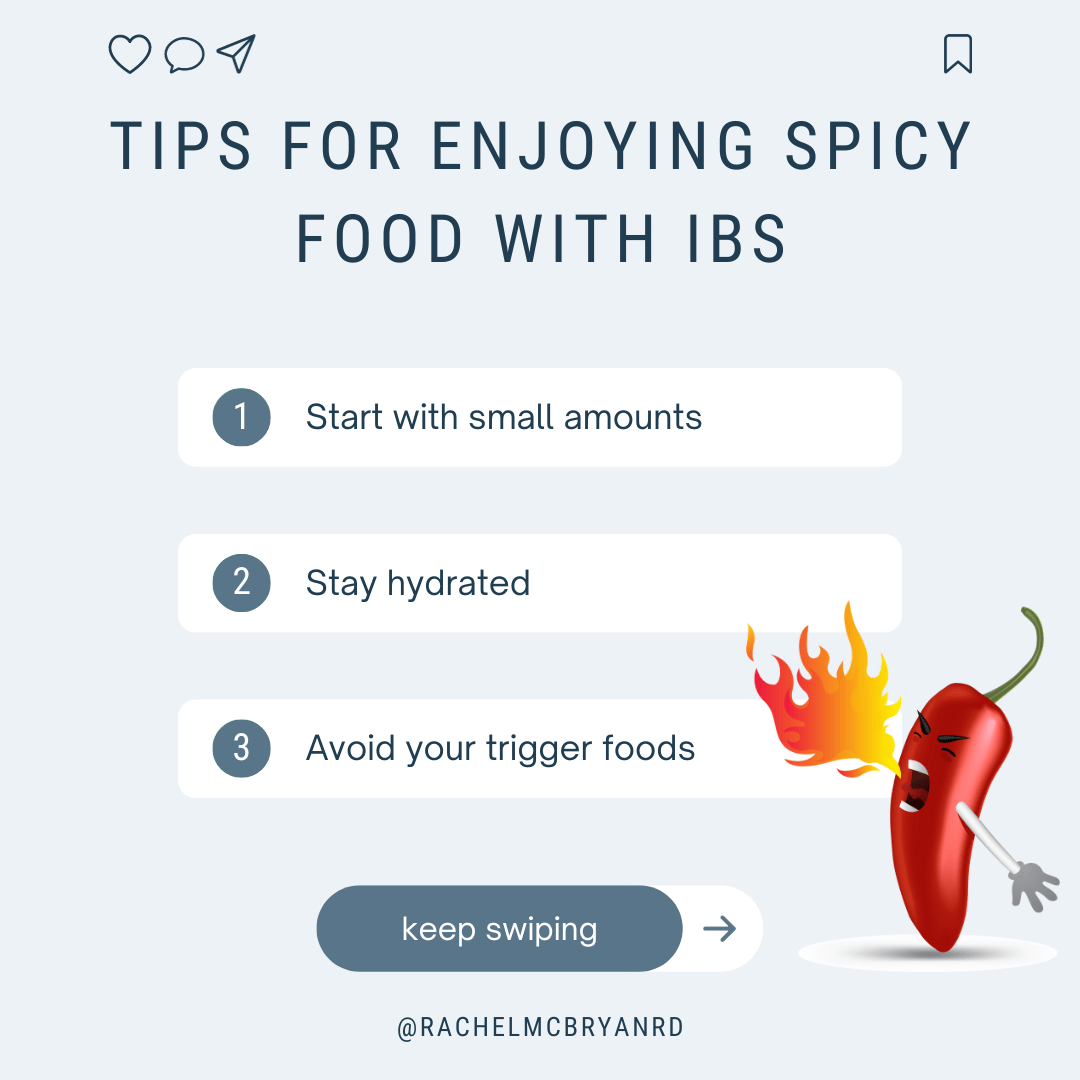Written by Kimberley Gittens, RD on behalf of Rachel McBryan, RD
Are you someone who loves spicy foods but suffers from IBS? If so, you may have heard that spicy foods can exacerbate IBS symptoms. This is because many spicy foods contain capsaicin, a compound that can stimulate the digestive system and cause discomfort for those with IBS.
However, with a little bit of planning, you can still enjoy spicy foods while managing your IBS symptoms. This article discusses some tips for eating spicy foods with IBS, including how to limit your FODMAP intake and what herbs and spices to use.
What is Capsaicin?
Capsaicin is a compound found in many spicy foods that can stimulate the digestive system and cause discomfort for people with IBS. It is responsible for the “heat” sensation that we associated with spicy foods.
How Capsaicin Affects GI Symptoms
Capsaicin activates a receptor called TRPV1 which is found in both our mouths and gut and is responsible for detecting heat and pain. When capsaicin activates this receptor, it causes a burning sensation. Because TRPV1 receptors are found in our gut, this can be particularly uncomfortable for people with IBS, as their digestive systems are already sensitive. Capsaicin can also increase the production of stomach acid, which can exacerbate symptoms like heartburn and acid reflux.
Reducing GI Symptoms with Spicy Foods
While eating spicy foods can be a great way to add flavor to your meals, it can increase your risk of experiencing GI symptoms. However, limiting your FODMAP intake before and after eating spicy foods can help prevent these GI symptoms.
One of the main concerns when it comes to eating spicy foods with IBS is their potential to stimulate symptoms. One way to reduce your risk of GI symptoms is to limit your FODMAP intake before and after eating spicy foods. To help limit your FODMAP intake, you can try using low FODMAP substitutes. For example, instead of using onion and garlic, you can use the green parts of scallions or chives. You can also use low-FODMAP spices like cumin, coriander, and paprika to add flavour to your recipes.

Low-FODMAP Herbs and Spices
Some spices such as, onions, garlic and chilli powder, are high in FODMAPs and can cause digestive issues. However, low FODMAP herbs and spices are a great way to add flavour to your meals without exacerbating symptoms of IBS. You can find a list of low-FODMAP spices and herbs below:
Here is a list of low FODMAP spices:
-
- Cumin
- Coriander
- Paprika
- Ginger
- Turmeric
- Basil
- Oregano
- Thyme
Some low FODMAP spices, such as ginger and turmeric have anti-inflammatory properties and can help soothe your digestive system and may be a beneficial for your IBS.
When choosing which herbs and spices to use, it’s important to check their FODMAP content. Monash University has a great app that can help you determine which foods are high or low in FODMAPs. his can help you make more informed decisions when planning your meals. Additionally, it is a good idea to use these spices in moderation and to monitor your symptoms to ensure that you are not consuming too much of them.
5 Tips for Enjoying Spicy Food with IBS
Here are 5 tips to keep in mind when eating spicy foods with IBS:
1. Start with Small Amounts
It’s best to start with small amounts of spicy foods and slowly increase your intake as you become more comfortable with the heat. As you become more comfortable with spicy foods, you may want to experiment with different types of spices and dishes to find options to suit your taste, and keep your gut happy.
2. Avoid Trigger Foods
If you notice that certain spicy or high-FODMAP foods make your IBS symptoms worse, try to avoid them or replace them with low-FODMAP options when eating a spicy meal
3. Stay Hydrated
Staying hydrated is important for gut health, especially for those with IBS. Spicy foods can be dehydrating, so be sure to drink plenty of water and other fluids throughout the day. Dehydration can lead to constipation, which can exacerbate IBS symptoms. Drinking enough water can help keep your digestive system moving smoothly and may help prevent constipation.

4. Eat Mindfully
aking your time to eat spicy foods not only allows you to savor the unique flavors but can also help prevent digestive issues. By slowing down your eating, your body has more time to properly digest the food, which can lead to fewer discomforts such as heartburn or indigestion. Additionally, taking the time to enjoy your meal can also have psychological benefits, such as reducing stress and promoting mindful eating habits. So, next time you sit down to a spicy dish, remember to take your time and enjoy every bite.
5. Seek Professional Help
If you are unsure of which spicy foods to consume or how to manage your IBS symptoms, consider consulting with a registered dietitian. They can provide you with personalized dietary recommendations and help you navigate the many challenges of living with IBS. Additionally, they can assist you in finding alternative ways to add flavour to your meals without relying on spicy foods, making it easier for you to enjoy your favourite dishes while keeping your symptoms under control.
By following these tips and being mindful of your body’s reactions, you can still enjoy spicy foods while managing your IBS symptoms. Remember that everyone’s IBS triggers can be different, so it’s important to monitor your body’s reactions to spicy foods and make adjustments as needed. If you’re unsure about which spicy foods to eat or how to manage your IBS symptoms, it’s always a good idea to consult with a registered dietitian for personalized advice.
Key Takeaways
Spicy foods can be a delicious addition to any meal, but for those with irritable bowel syndrome (IBS), they can be a trigger for uncomfortable symptoms. However, this doesn’t mean that these foods are completely off-limits. In fact, there are ways to enjoy them without exacerbating your symptoms. One way is to limit your intake of FODMAPs. By choosing low FODMAP herbs and spices, you can still indulge in your favourite spicy dishes without worrying about triggering your symptoms. Additionally, there are many low FODMAP recipes available that incorporate these herbs and spices, providing you with a variety of flavourful options. As always, it’s important to listen to your body and make adjustments as needed, but with these tips, you can still enjoy the bold flavors of spicy foods while managing your IBS symptoms.
Beat the Bloat
Working with a Registered Dietitian will ensure that you’re meeting all of your nutrient needs, while reducing GI symptoms. Book a FREE discovery call to get started!
References
Kimberley is a Registered Dietitian, licensed in Ontario. She helps clients across Ontario control their blood sugars and reduce their risk of chronic conditions.


